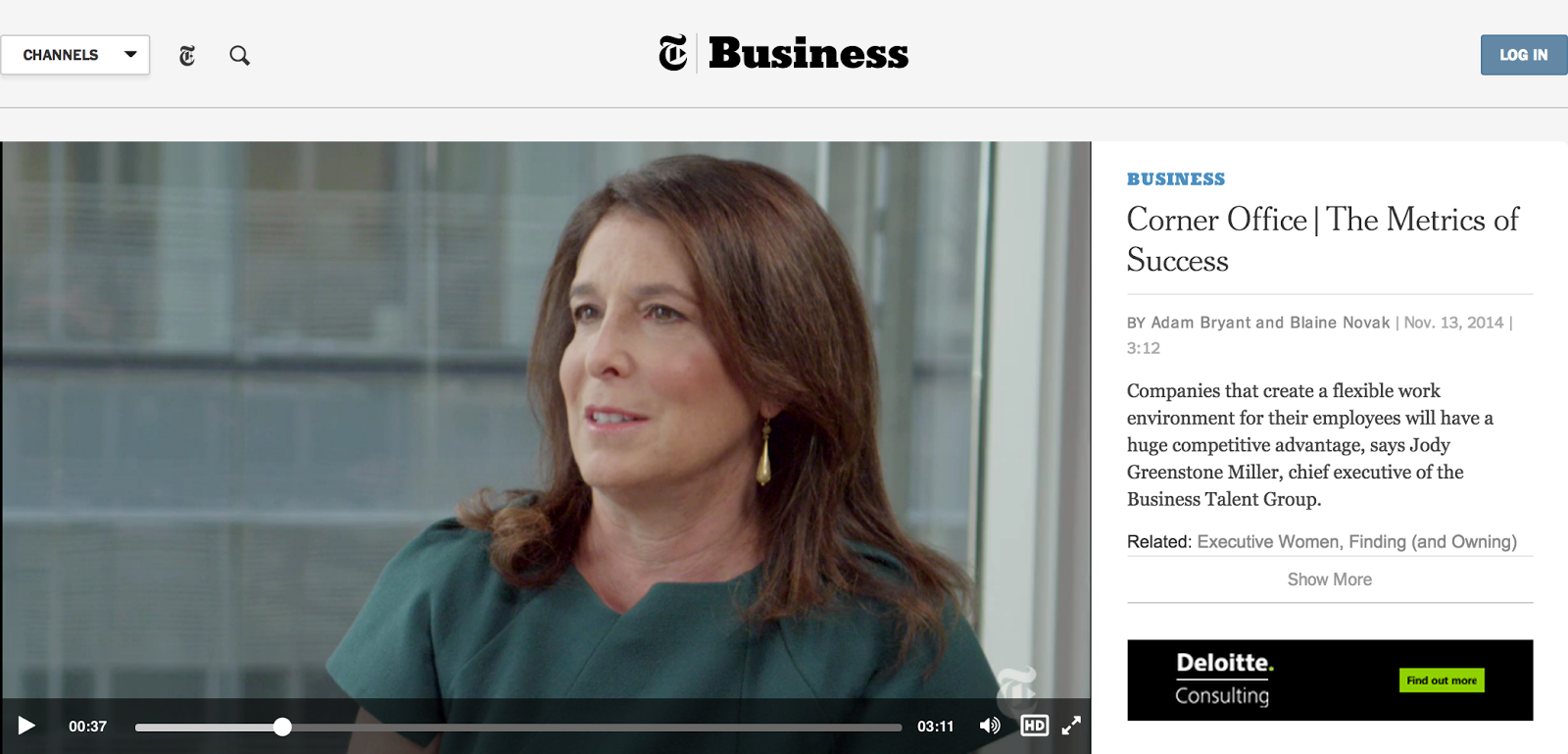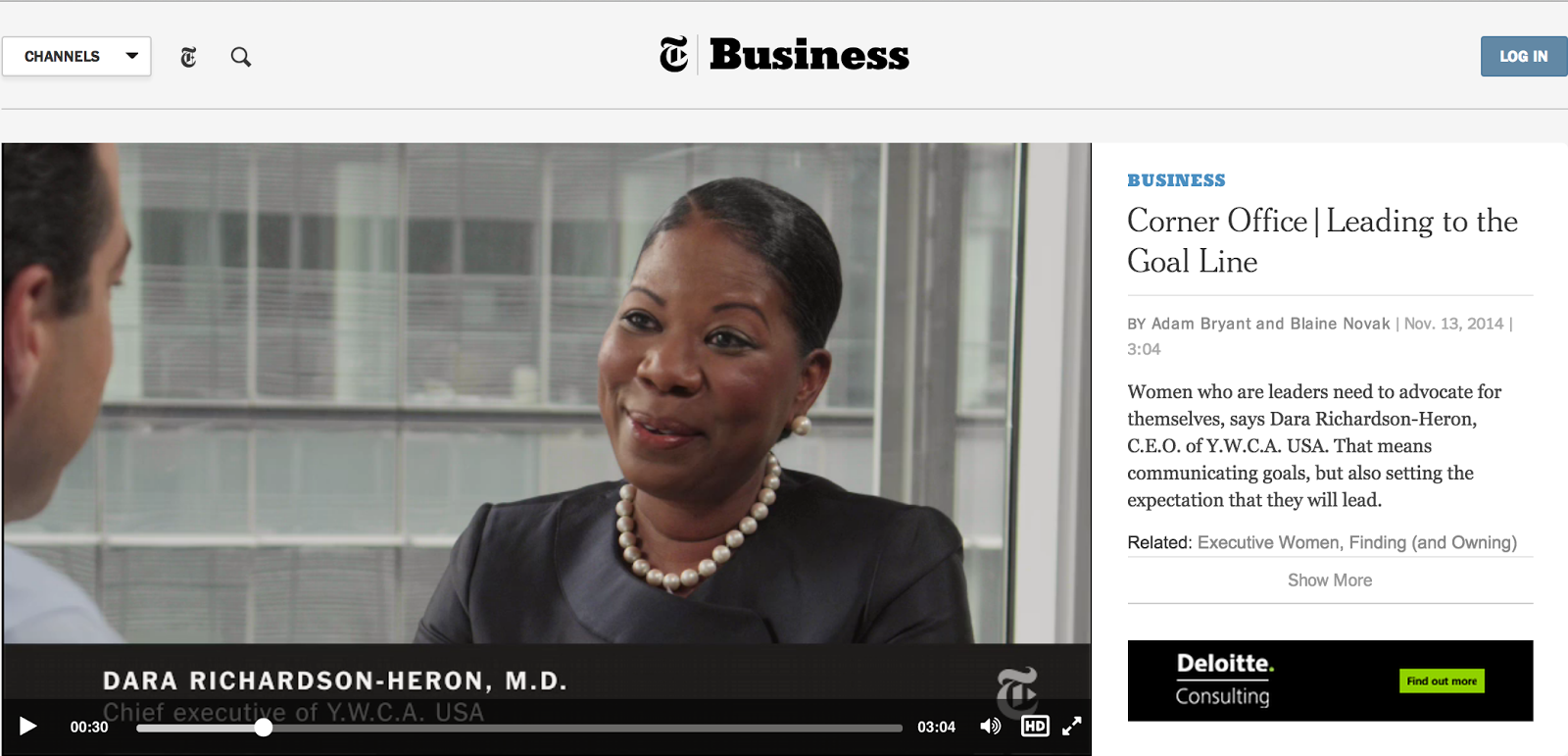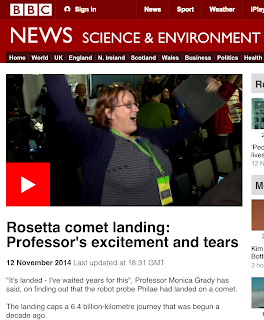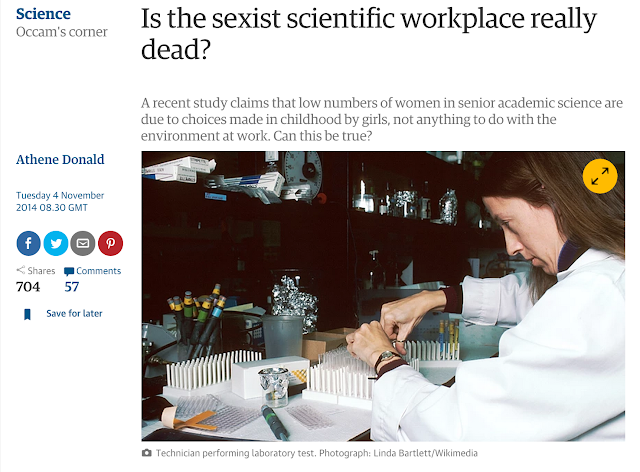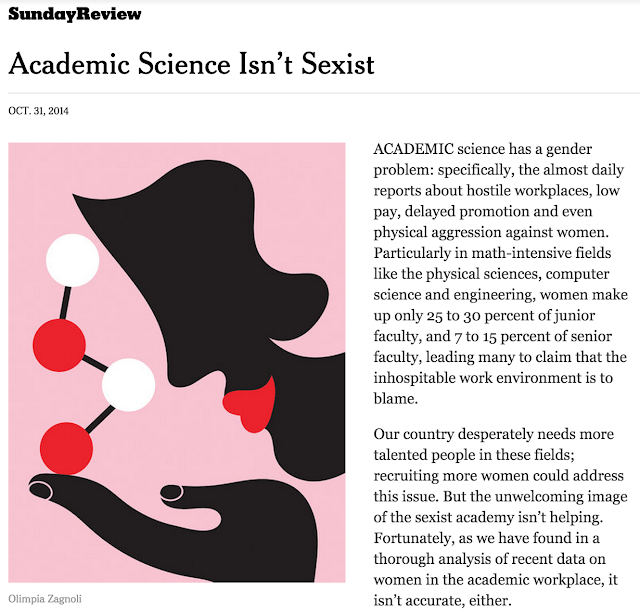Jody Greenstone Miller, chief executive of the Business Talent Group, speaks on flexible work environments—www.nytimes.com/video/business/100000003229855/corner-office-the-metrics-of-success.html.
NYTimes Video: Leading to the Goal Line
Dara Richardson-Heron, M.D., C.E.O. of Y.W.C.A. USA, speaks on setting expectations of leadership to Adam Bryant and Blaine Novak—www.nytimes.com/video/business/100000003229913/corner-office-leading-to-the-goal-line.html.
BBC News: Rosetta comet landing: Professor’s excitement
The European Space Agency’s successful landing on the Rosetta comet is an amazing achievement.
As a side effect, it has also led to a lot of discussion around the representation of women in science. Here’s a great clip to keep in mind of Professor Monica Grady, who “was in on the Philae lander project from its earliest days and jumped for joy when she found out the news.”
Guardian: Is the Sexist Scientific Workplace Really Dead?
Source: www.theguardian.com/science/occams-corner/2014/nov/04/is-the-sexist-scientific-workplace-really-dead
One excerpt:
“The authors [Williams, Ceci, Ginther, Khan] claim,
out of the 124 hires made in physics … only 13% of the applicants were females (… much less than the percentage of females among PhDs …), but 19% of those invited to interview were women, as were 20% of those actually hired.
This tells me that more women than men are dropping out before applying for a faculty position at all. That may indeed be due to women’s choices, but the choice may be determined or at least affected by a hostile workplace – not discussed here – rather than by innate ability. Those who stick around may therefore not be typical: not only tough but particularly bright. This can only be speculation but it might explain why women are hired at rates higher than their presence in the application pool might suggest. Reading the study by Williams et al. it looks as if they wish to convey that all is so hunky dory that the higher percentage of female hires is down to a particularly beneficent environment.”
NYTimes: Academic Science Isn’t Sexist
Source: www.nytimes.com/2014/11/02/opinion/sunday/academic-science-isnt-sexist.html
Quote:
“Our analysis reveals that the experiences of young and midcareer women in math-intensive fields are, for the most part, similar to those of their male counterparts: They are more likely to receive hiring offers, are paid roughly the same (in 14 of 16 comparisons across the eight fields), are generally tenured and promoted at the same rate (except in economics), remain in their fields at roughly the same rate, have their grants funded and articles accepted as often and are about as satisfied with their jobs. Articles published by women are cited as often as those by men. In sum, with a few exceptions, the world of academic science in math-based fields today reflects gender fairness, rather than gender bias.”
Portraits of Women in Mathematics in France
A series of portraits on Women in Mathematics in France created by the Femmes et mathématiques (Women and Mathematics) in 2000-2001—www.ihes.fr/~carbone/papers/women.pdf.
NPR: Is ‘Leaning In’ The Only Formula For Women’s Success In Science?
Quote: “I’m sure that there are people who are skeptical that a woman can do this job as well as a man,” Arnold says, adding, “I am blissfully unaware of such people — and have been gifted with the ability to ignore them completely.” She advises other women in fields dominated by men to do the same. ~ US National Public Radio “Shots” Health Blog, article “Is ‘Leaning In’ The Only Formula For Women’s Success In Science?” by Kelly McEvers.
WashingtonPost: Warren talks sexism in the Senate
 |
| AP Photo by Charles Dharapak accompanying the Washington Post article, “Warren talks sexism in the Senate“ |
“Others have said it before me: if you don’t have a seat at the table you’re probably on the menu.” ~ Elizabeth Warren, US Democratic Senator.
Warren stresses the importance of electing women to Congress in a Washington Post article titled “Warren talks sexism in the Senate: It’s hard to change these big, male dominated institutions.”
WISE@QMUL presents Lost In Translation? The challenges of crossing borders
More information: wiseqml.wordpress.com
Guardian: Why women are under-represented in science and engineering
 |
| Picture from “Why women are under-represented in science and engineering“ |
Julia King describes five factors relating to confidence, stereotyped language (“scientists are ‘he’, hairdressers are ‘she'”), and a lack of role models that hold women back from careers in science and engineering in Guardian article, “Why women are under-represented in science and engineering“
